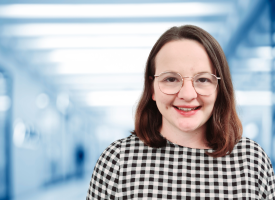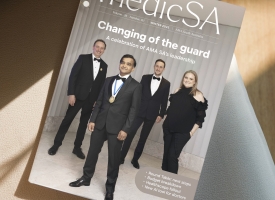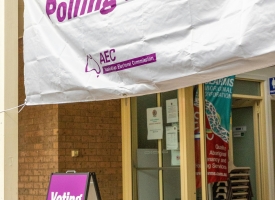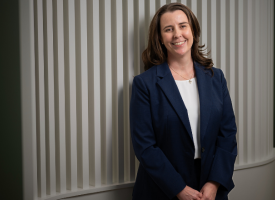Meeting Queensland's future health workforce needs
AMA Queensland President Dr Nick Yim spoke to ABC Radio the morning of the Committee of Economic Development of Australia (CEDA) health workforce event about the importance of addressing our workforce crisis and what message he hoped to deliver as a panellist.
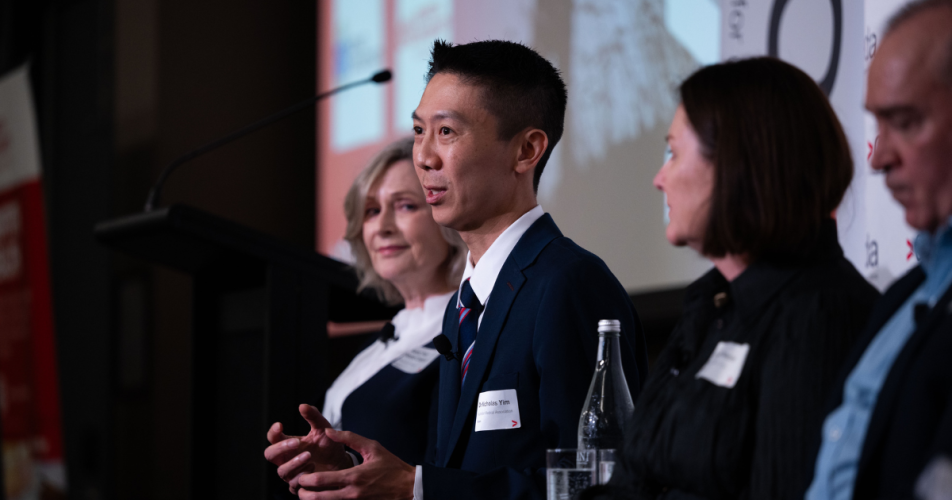
Transcript: AMA Queensland President Dr Nick Yim, ABC Radio North Queensland, Mornings with Susan Graham-Ryan, Wednesday 21 May 2025
Subjects: Health workforce challenges
SUSAN GRAHAM-RYAN: Is the state's shortage of doctors and nurses and other health professionals more than just a health problem? There's a conference underway this morning all about meeting Queensland's future health workforce. So, when it comes to this health issue, is economic development a comorbidity? Dr Nick Yim is the President of the Australian Medical Association Queensland. I caught up with him a short time ago.
DR NICK YIM: AMA Queensland, we're one of the panellists at the CEDA Health Workforce Panel. So CEDA stands for the Committee of Economic Development of Australia. It's always great to hear Minister Nicholls describe what is potentially the plan moving forward for Queensland, for our health workforce. Across the state of Queensland, we are currently challenged with our health workforce. We know patients are waiting longer and what that means is unfortunately sometimes our healthcare conditions can deteriorate or have additional complications such as pain. So, this is the reason why it's so important.
SUSAN GRAHAM-RYAN: So, you're one of the speakers today for this catch-up including the Health Minister Tim Nicholls. What are the big challenges that the government need to look at when it comes to health across this term?
DR NICK YIM: There is a state budget coming up and it's great that currently there is a commitment for more hospital beds and health workforce staff, but we do need to ensure that there is a plan moving forward. We need short-term, medium-term and long-term plans that are sustainable. Firstly, we know that we need to bring doctors into our state of Queensland, and it is currently quite a competitive nature. Across the world we know that there is a large workforce shortage which is the reason why we need to be competitive. One of AMA Queensland's solutions is a reinstatement of the workforce incentive [scheme] to help bring doctors into our state of Queensland, which is one short-term strategy. The other key thing is training. We know that there are some areas that need more specialties and more GPs with additional skills. Those are areas such as anaesthetics, obstetrics, mental health. That's another reason why we're calling for incentives for doctors to train in those areas.
SUSAN GRAHAM-RYAN: The importance of having these experienced medical professionals is, of course, the health outcomes, but there needs to be short-term solutions and longer-term solutions. Some of those longer-term solutions will be attracting more people to work in the health sector, whether as doctors, allied health professionals, nurses, or other expertise in the fields. Are there longer-term solutions that they need to also be looking at?
DR NICK YIM: So one of the long-term solutions, and this stems from some of the surveys that we do of our members in the workforce, is that while financials play a role, we also know within the healthcare system culture is so important. If we have a system that promotes psychological safety, we know that this will minimise burnout amongst our colleagues. If we can minimise burnout, that will prevent people from leaving the healthcare system. So that's the long-term strategy. We need to ensure that healthcare services and Queensland Health are educating from the top all the way down to those early doctors and staff to ensure that there are appropriate cultural supports across the whole range.
SUSAN GRAHAM-RYAN: You're hearing from Dr Nick Yim, the AMA Queensland President. It's no doubt a very complicated problem because we also know that if we don't have experienced doctors, it's hard to train that next generation of doctors at the rate that we need, but also at the level that we need as well, right?
DR NICK YIM: This is the other element – it is the reason why we need to ensure that we are retaining those experienced doctors in the healthcare system. We don't want them leaving the profession early due to burnout. We know that burnout is one of the big reasons as to why people may leave the state, may leave the country or even completely leave the profession. That's not something that we want.
SUSAN GRAHAM-RYAN: It's a big issue. It's an important issue. Of course, you're a doctor, so you can speak from your own personal experience. But we've also been hearing from nurses and midwives this week that their enterprise bargaining is still ongoing with the state government. Is this something that you think we might see more of? Some of these harder negotiations to ensure that nurses, allied health professionals or even doctors have good pay and good conditions to be able to do these jobs that we need people to be in?
DR NICK YIM: 100 per cent. So, regarding financial remuneration, we do need to be competitive against other states in the world. At the same time, conditions need to be so important. We have seen the situation in New South Wales where there was unfortunately a strike. Ultimately, we are putting patients and the communities first and foremost, we need to ensure that they are safe. We need to be delivering good, high-quality care that is sustainable. If there is burnout within our health workforce, that is not sustainable and can affect patient outcomes. It's something that we do need to work on and investment into the future is so important.
SUSAN GRAHAM-RYAN: It's one of those challenges that's not going to be fixed in a day. But today the minister, as I mentioned, there's also representatives from different health services, from different healthcare facilities, from Health Consumers Queensland. Are you hopeful that there will be some really productive conversations that happen at this morning's conference?
DR NICK YIM: This is only just a start and important to have the key stakeholders in the room to have those important discussions, because ultimately, we are all working towards a healthier Queensland. This is the reason why it's so important to continue to invest into a sustainable future.
SUSAN GRAHAM-RYAN: Because this is being run by CEDA, the Committee for Economic Development of Australia, this is essentially reinforcing that health is important to the economic development of Australia, this morning's function.
DR NICK YIM: You're absolutely correct. We know that if people are unwell, whether it be having knee or hip pain, waiting for a knee replacement or hip replacement, that individual may be in chronic pain that leads to, unfortunately, time out of work or an inability to care for their loved ones or themselves, which does happen at additional costs to society in some way or another. This is the reason why having a healthy Queensland will ensure the economic productivity of our state.
SUSAN GRAHAM-RYAN: Are there any other messages that you would like to send, to share this morning?
DR NICK YIM: One of the other big elements is, across the country, we have seen fragmented investments into healthcare. We have seen urgent care clinics and that newly review has demonstrated that it is more costly than investment into general practice. We want to ensure that there is collaborative healthcare delivery to the state of Queensland because when all healthcare professionals are working as a team, that would lead to better patient outcomes.
SUSAN GRAHAM-RYAN: President of AMA Queensland Dr Nick Yim there, sharing about this morning at the Committee for Economic Development of Australia conference, which is called Meeting Queensland's Future Health Workforce Needs. A big issue facing many regional Queensland locations.
